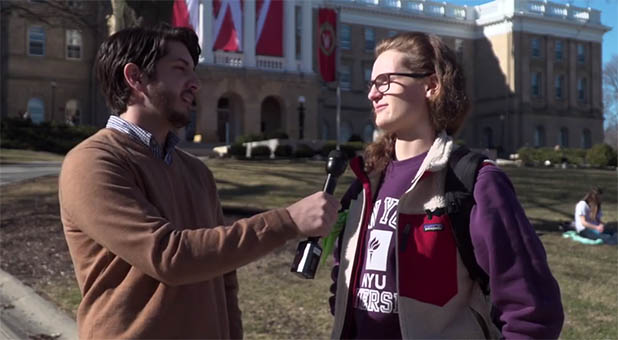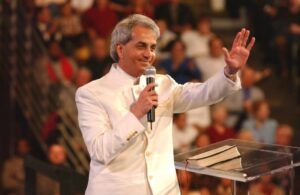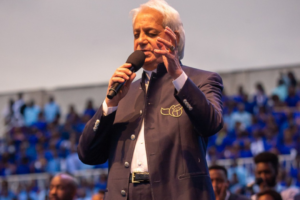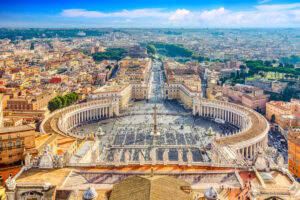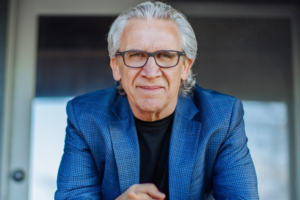When a fashion designer recently called for an industry boycott of Melania Trump due to her political beliefs, plenty of progressives called it brave and principled. Yet when Christian wedding photographers express their own disagreements or beliefs, acting on one’s conscience somehow becomes a “sticky issue.”
That’s how one student describes it in a series of interviews at the University of Wisconsin-Madison.
In their discussions, the Alliance Defending Freedom found total consensus among students that creative professionals should have the freedom to conduct business according to their beliefs. That consensus quickly began to break down when the “creative professional” in question was an evangelical Christian (vs. a Muslim singer or an anti-Trump fashion designer).
Watch the exchanges in the video above.
“When faced with a situation that conflicts with the current cultural expectations … the gears start grinding,” the interviewer concludes. “If a law that forces someone to promote something that’s against their beliefs is so laughable, so unimaginable, then why is it so difficult to extend that same freedom to Christian creative professional?”
Unfortunately, this isn’t simply an academic discussion. For artists and business owners such as Amy Lawson, a 25-year-old blogger and photographer living in Madison, such freedoms are already threatened by a looming city ordinance.
According to Lawson, her writing and photography exists to “capture and convey beautiful, pure and true moments in ways that help us stop, see and savor the light God has given us.” In the past, this has sometimes meant telling stories that highlight the sanctity of life and marriage through a Christian lens, whether by capturing wedding ceremonies or the activities of pro-life pregnancy health clinics.
Thus far, she’s had the freedom to create and serve clients according to her beliefs. To prevent any future threats to that freedom, she is challenging the City of Madison. ADF summarizes the situation as follows:
A sweeping Madison, Wisconsin, ordinance and a state law force commissioned creative professionals to promote messages that violate their beliefs. For example, a Madison-based speechwriter who opposes President Trump would be subject to severe punishment if she refused to write a speech for him. Under these same laws, Amy Lawson and her company, Amy Lynn Photography Studio, are required to create photographs and blog posts promoting pro-abortion groups and same-sex marriages if she creates content that promotes pro-life organizations or that celebrates the marriage of one man and one woman.
As the student interviews demonstrate, cultural pressures are wielding increasing sway in the public imagination when it comes to religious liberty. In our fight against such distortions, we should stay mindful of the negative ripple effects they imply for not just individual conscience, but the broader economic order.
In Acton’s latest collection of essays on the topic, One and Indivisible: The Relationship Between Religious and Economic Freedom, Michael Novak explains the connection, noting why it’s crucial that religious liberty not be defined by culture:
Religious liberty is a natural right. Indeed, it is the first and most fundamental of natural rights from which all others spring. The American founders recognized that once a person recognizes the full meaning of creature and Creator, he recognizes as self-evident the duty in conscience of the former to the latter. He recognizes as well that this duty is inalienable. For Christians at least, such a ground for religious liberty means that the right of conscience extends to all persons, even to those who have not yet seen evidence for recognizing a Creator.
Economic liberty, as we have seen, is indispensable for allowing human persons to fulfill the creative impulse in our nature, felt even by those who do not admit that we are made in the image of the Creator of all things. The historical evidence is clear and inarguable. Systems that respect and promote economic liberty are far more creative, habitually inventive, and self-improving. Best of all, they produce the best results, both for individual persons and for the common good.
Thus, religious freedom and economic freedom are intimately related. Religious freedom is deeper and more basic, and gives a more granite grounding to all other freedoms.
At a time when all other freedoms continue to be threatened on all sides—as government expands, culture secularizes and materialism invades—keeping that granite intact is critical, indeed.
Joseph Sunde is a writer and project coordinator for the Acton Institute, serving as editor of the Letters to the Exiles blog and content manager of the Oikonomia channel at Patheos.com. He is the founder of Remnant Culture and was a longtime contributor to AEI’s Values & Capitalism project.
This article was originally published at Acton.org. Used with permission.
See an error in this article?
To contact us or to submit an article


